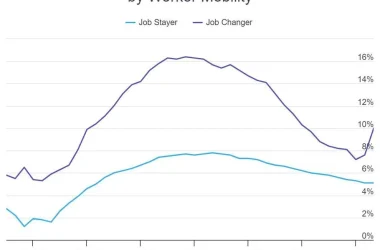By ERIN BECK
Charleston Gazette-Mail
CHARLESTON, W.Va. — A bill that would permit doctors to recommend medicinal marijuana and establish a regulation system in West Virginia was approved by the House of Delegates on Tuesday.
The Senate President has said it is likely the Senate will concur with the legislation and send it to the governor, who has said he is open to medical marijuana.

The original bill (SB 386), which would have created a West Virginia Cannabis Commission charged with overseeing medical marijuana regulation in the state, passed the Senate last week.
They also made several other changes. In a 51-48 vote, delegates approved an amendment by Delegate John Shott, R-Mercer and House Judiciary chairman, that would prohibit smoking, ban people from growing their own plants, and charge $100,000 annual fees for growers and processors. That fee was cut in half during a late-night floor session.
Senate President Mitch Carmichael said Tuesday afternoon that the Senate plans to concur with the House’s changes. Jacque Bland, spokeswoman for the Senate, said that likely won’t occur until Wednesday.
“That’s our expectation, unless we find something that is just totally out of bounds in this bill,” Carmichael said. “We trust the House of Delegates and Chairman Shott’s work on this piece of legislation.”
Carmichael, R-Jackson, has been a sponsor of medical marijuana legislation.
“Who are we as legislators to stand in the way of someone utilizing a product to alleviate their pain and suffering?” he said.
The governor would still need to sign the bill for it to become law, and no patient identification cards would be issued until July 2019.
Grant Herring, spokesman for the governor, said that the governor has “said all along that he believes in compassion for the terminally ill and is open to medical marijuana.”
During a floor session Tuesday, Delegate Tom Fast, R-Fayette and an opponent of the bill, argued that the state should abide by federal law.
“If 28 people are going to jump off a bridge, are you going to jump off a bridge with them?” he said, referring to the 28 states that have comprehensive medical marijuana programs.
“Now I’m not a doctor and I don’t know all the medical benefits,” said Delegate Gary Howell, R-Mineral, “I don’t know all the medical downsides, but I do know people at the end of life, it gives them hope.”
George Ambler, R-Greenbrier and a history teacher, said he has taught “on more than one occasion in 25 years when things aren’t quite right that the population has to try to stand up and make adjustments.”
“What hasn’t been available is a protection for our physicians to use it as a tool,” he said.
The bill passed in a 76-24 vote. Kanawha and Putnam delegates that voted against it included Geoff Foster, R-Putnam, Nancy Foster, R-Putnam, and Speaker of the House Tim Armstead, R-Kanawha.
While proponents of the original bill had spoken against Shott’s amendment Monday, saying the Senate may not concur with it, and that it benefited pharmaceutical companies at the expense of low-income West Virginians, on Tuesday, proponents in the House were saying they supported the amended legislation.
“It really is a good first step,” said Delegate Mike Pushkin, D-Kanawha. “We can fix it later.”
Sen. Richard Ojeda, D-Logan and the lead sponsor in the Senate, also is a supporter.
“We can work with it,” he said, although he also would have preferred legislation allowing people to grow their own plants or parents to purchase edibles for children with certain medical conditions. The current legislation would require people to make their own edibles.
Former delegate Mike Manypenny, who first introduced medical marijuana in the House of Delegates, has been at the Capitol advocating for the legislation this week.
Manypenny, who ran for Congress in the 1st District against Rep. David McKinley, said the current form of the bill “opens it up for Big Pharma and corporate elites or just those already rich to run the industries.”
According to the legislation, qualifying patients would need to have “serious health conditions,” including: cancer; HIV or AIDS; amyotrophic lateral sclerosis; Parkinson’s disease; multiple sclerosis; damage to the nervous tissue of the spinal cord with objective neurological indication of intractable spasticity; epilepsy; neuropathies; Huntington’s disease; Crohn’s disease; post-traumatic stress disorder; intractable seizures; sickle cell anemia; severe chronic or intractable pain of neuropathic origin, or intractable pain in which conventional therapeutic intervention and opiate therapy is contraindicated or has proven ineffective; or having a medical prognosis of one year or less to live.
The nearly 60-page bill states that the bureau would regulate medical cannabis in the state; review physician applications; issue permits to growers, dispensaries and processors; maintain an electronic database to include “activities and information relating to medical cannabis organizations certifications and identification cards issued, practitioner registration and electronic tracking of all medical cannabis;” and maintain a directory of patients and caregivers to whom it has issued ID cards.
It would also develop a four-hour training course for healthcare providers, establish a medical research program, and develop enforcement procedures, including inspections of growers, processors and dispensaries, and have the ability to cap prices.
Also according to the bill, medical cannabis may only be dispensed by pill, oil, topical forms, vaporization or nebulization, tincture, liquid, or dermal patch.
Counties would be able to vote to ban medical cannabis organizations.
Shott’s original amendment said that the bureau could not issue permits to more than five growers, five processors, and 15 dispensaries. An amendment passed late Monday doubled those numbers.
See more from the Charleston Gazette-Mail




